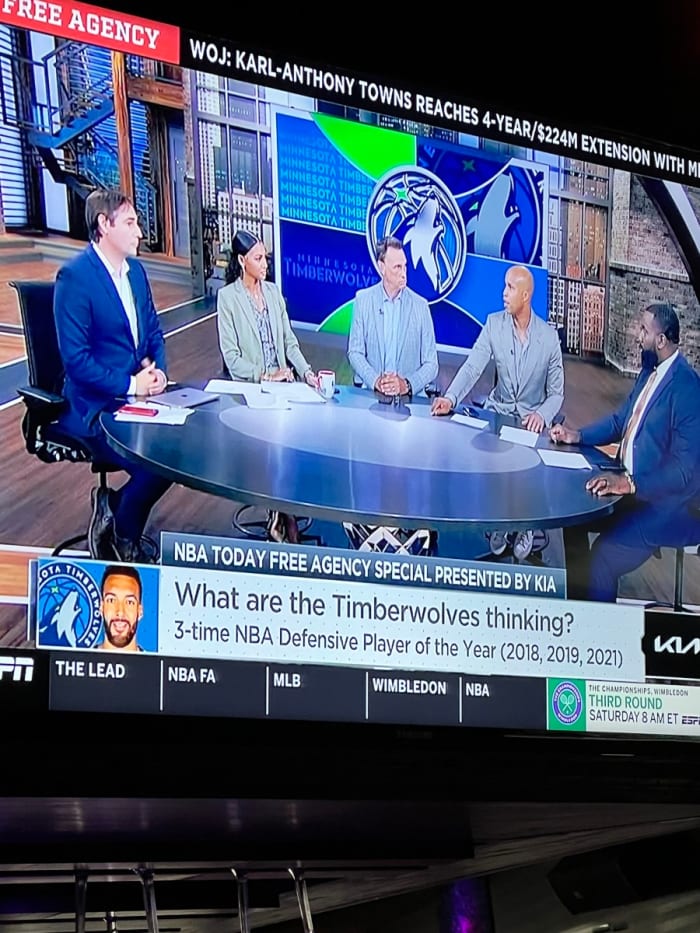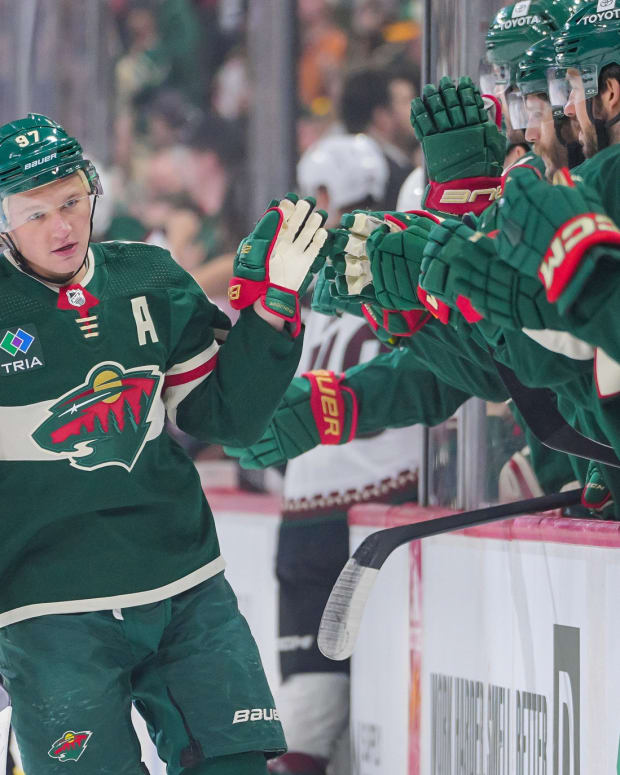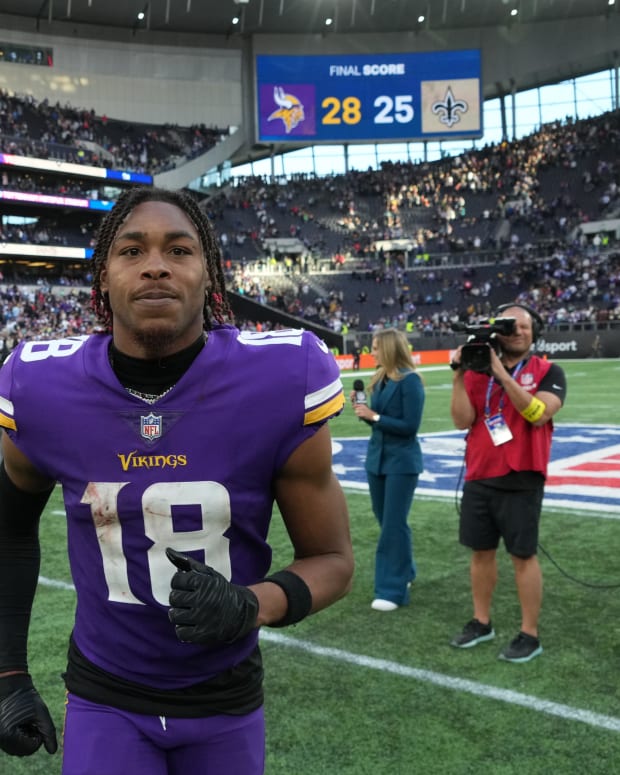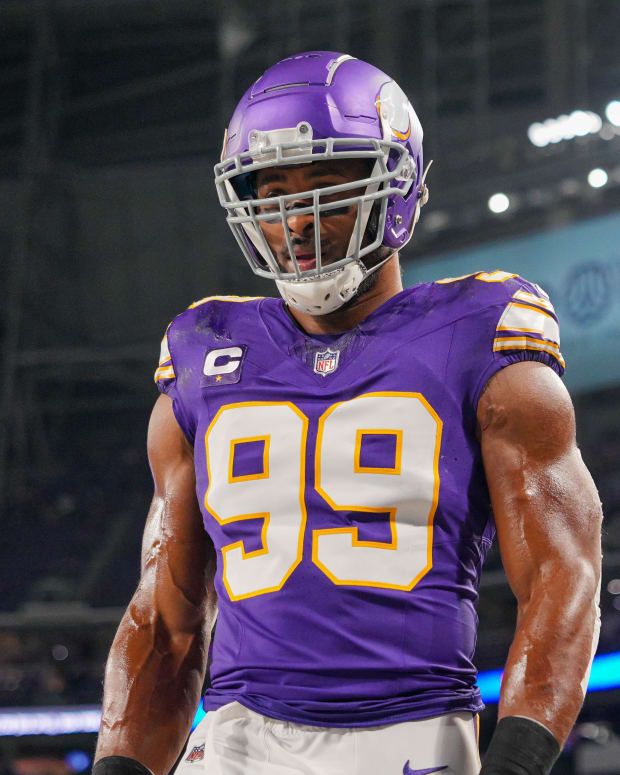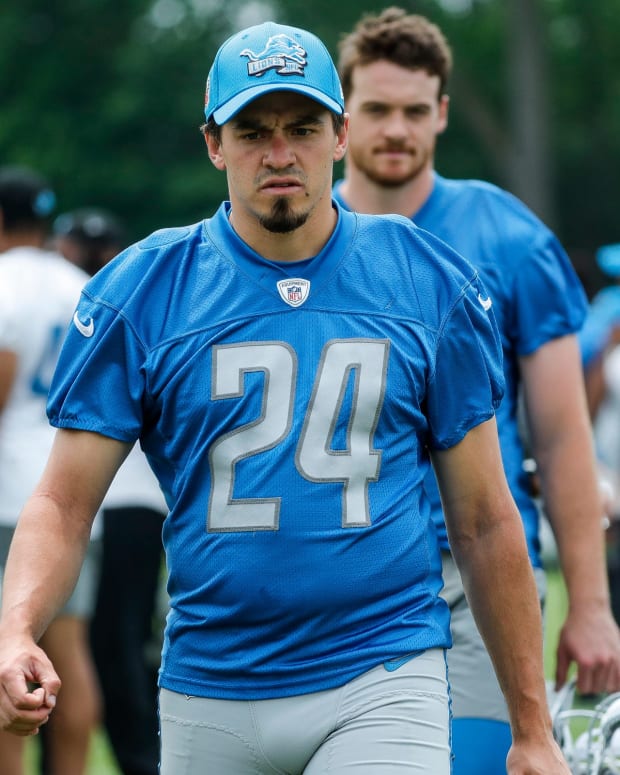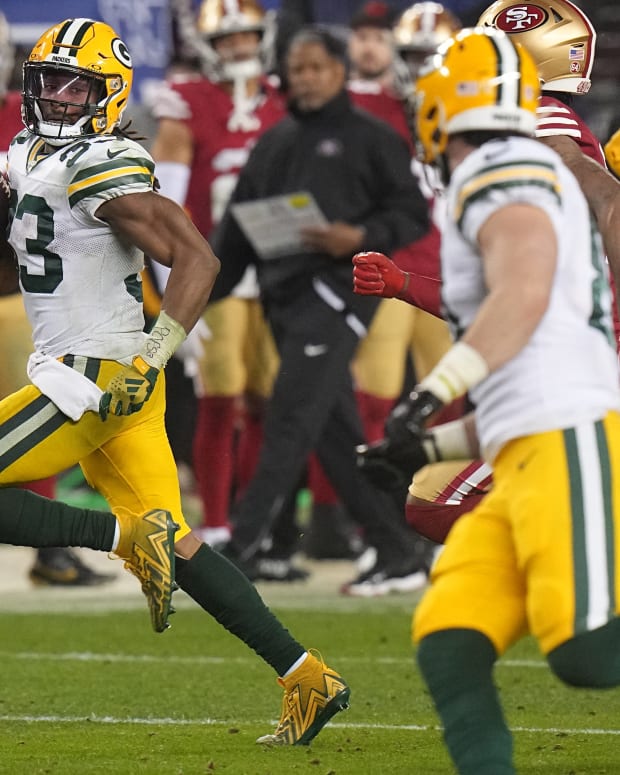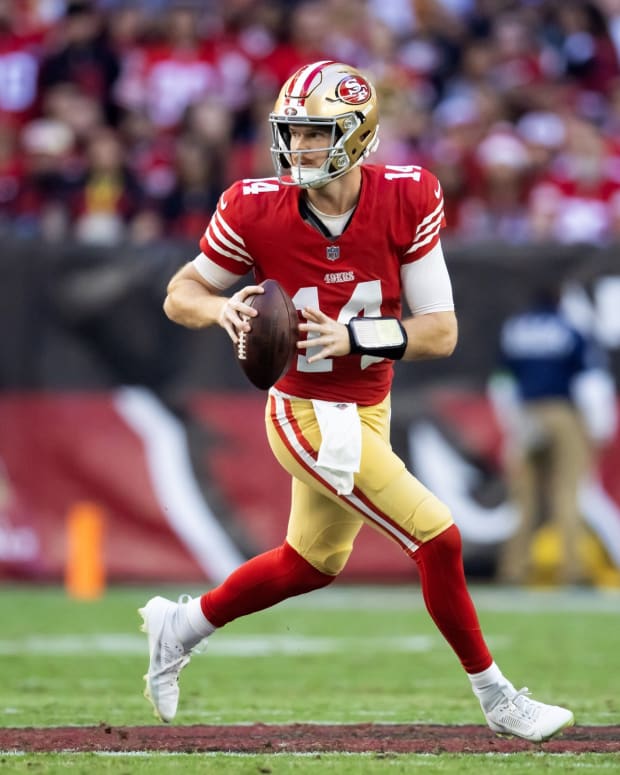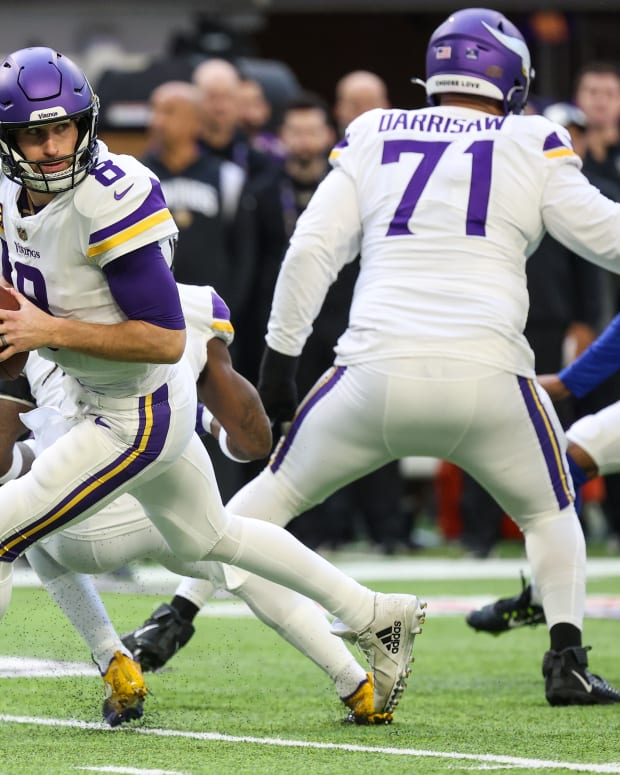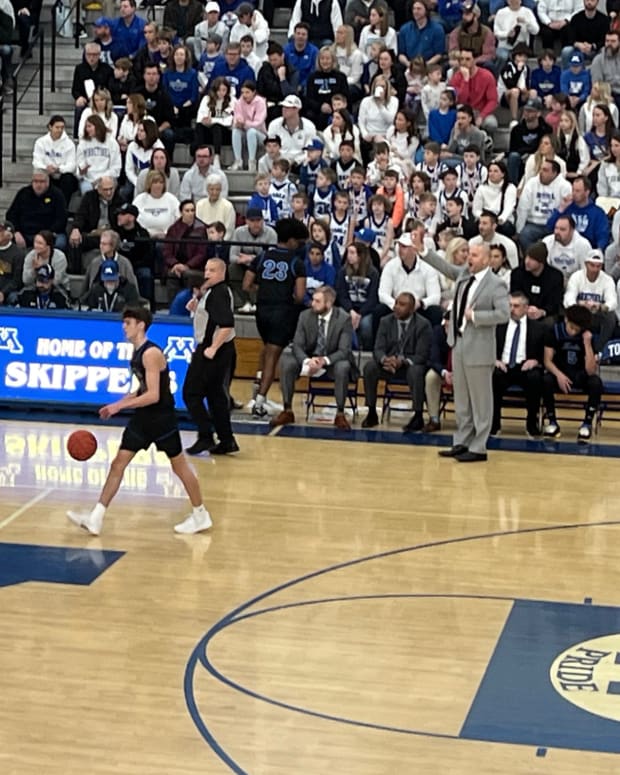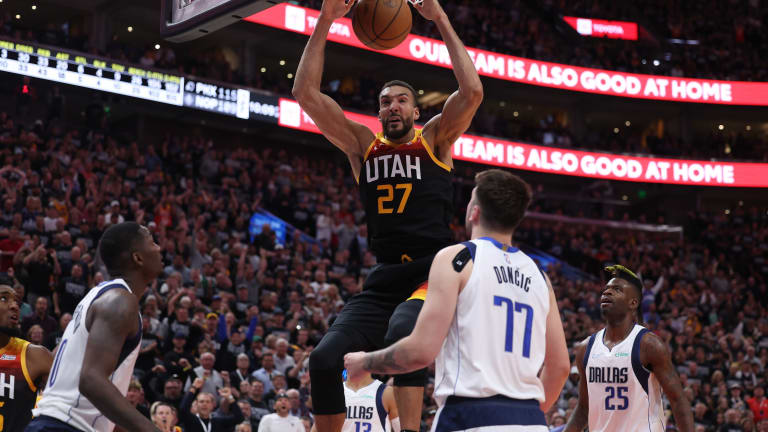
Did the Timberwolves overpay for Rudy Gobert?

The Minnesota Timberwolves made a seismic move on Friday, acquiring Rudy Gobert from the Utah Jazz in exchange for five players and four future first-round draft picks. The trade sent shockwaves across the NBA and presented a question that everyone seemed willing to answer: Did the Timberwolves overpay for Gobert?
According to The Athletic's Jon Krawczynski, the Wolves don't believe so. President of basketball operations Tim Connelly and the rest of the front office were "over the moon" to acquire Gobert and they especially loved the move after Ja Morant drove to the rim with ease and Brandon Clarke dominated the glass during a playoff loss to the Memphis Grizzlies.
"As Connelly and the Timberwolves decision-makers, including holdovers Sachin Gupta, Manny Rohan and Finch and newcomers Matt Lloyd and Dell Demps, looked at the rest of the league, they had difficulty identifying a player that could be had for the package they were prepared to offer that covered up so many of their team’s weaknesses," Krawczynski wrote.
"They tried to picture what that series with Memphis would have looked like with Gobert there to keep Morant out of the paint and dwarf Clarke on the boards. They thought about how Russell’s life would have been so much easier with Gobert setting screens for him and offering a lob threat on the pick-and-roll while Russell sized up the drop coverage that he is so comfortable attacking. They thought about Edwards gambling even more on defense knowing that Gobert had his back if he got beat."
This logic makes it sound like pairing Gobert with Towns is a solid move. A reigning 3-point champion, Towns can move to power forward to space out the court while Gobert punishes smaller teams for driving to the rim. With Anthony Edwards on the outside, it surrounds Gobert with the type of shooters he didn't have in Utah and opens a window for the Timberwolves to contend in the Western Conference.
The move makes sense...but at what cost?
The Timberwolves gave up a lot to make this deal happen. Patrick Beverley was a culture changer but only played 58 games last season due to injuries. Malik Beasley is a sharpshooter that knocked down just under 38% of his 3-point attempts last season but is also a mercurial talent who has had off-the-court issues.
Jarred Vanderbilt is blossoming into a high-energy defensive stopper and offensive rebounding machine, but Gobert is a significant upgrade. Walker Kessler and Leandro Bolmaro are former first-round picks but are also unknowns that may never pan out.
Then there are the draft picks. The Timberwolves gave the Jazz unprotected first-round picks in 2023, 2025, and 2027 and a top-five protected pick in 2029. Utah also has the option to swap picks in the 2026 draft, making some fear that Connelly just traded for the hardwood version of Herschel Walker.
Walker, of course, was traded to the Minnesota Vikings in 1988 for what turned into two first-round picks, two second-round picks, a third-round pick, and a fourth-round pick. Those selections helped net Hall of Fame running back Emmitt Smith and safety Darren Woodson to help fuel the Dallas Cowboys dynasty in the 1990s but it doesn't work the same way in the NBA.
If Gobert turns the Timberwolves into a perennial contender, the draft picks going to Utah are going to be in the 20s. Over the past 10 years, only five players -- Jimmy Butler, Gobert, Clint Capela, Jarrett Allen and Pascal Siakam -- selected from pick No. 20 to pick No. 30 have gone on to become All-Stars.
There are several others, such as recent Timberwolves signee Kyle Anderson, who have gone on to become role players, but few reach the level of making a franchise truly regret dealing the pick.
It's why the Oklahoma City Thunder currently own 19 first-round picks and 19 second-round draft picks through the 2028 draft. If you're not picking in the lottery, these picks rarely net an elite-level player.
Still, the Gobert trade is extremely polarizing for those who cover the NBA. ESPN's Kevin Pelton gave the Timberwolves a D grade on the deal because while Gobert could transform Minnesota's defense, many of these types of trades don't work out.
"It's remarkable another team was willing to make a trade like this given how poorly the past few seem to be working out," Pelton wrote. "The Clippers and Los Angeles Lakers still might make their pick-heavy deals for Paul George and Anthony Davis, respectively, with Davis helping the Lakers win the title and the Clippers in the mix to win this year. That said, both teams sent back unexpected lottery picks this year with more picks still out the door going forward.
"Meanwhile, the Brooklyn Nets and Houston Rockets giving up a series of draft picks to acquire James Harden and Russell Westbrook, respectively, backfired when neither player lasted long in his new home. Houston is rebuilding and needed lottery luck to avoid swapping Oklahoma City the No. 5 pick last year, while the obligations to the Rockets affect the Nets' decision of how to handle Kevin Durant's trade request."
Sports Illustrated's Rohan Nadkarni was a little more lenient, giving the Timberwolves a C, but also likened the deal to a horror movie.
"It started out innocently enough with Gobert, but the inclusion of the four firsts was scream-inducing," Nadkarni wrote. "This is a massive haul for Gobert, who while talented, is also polarizing and making a large sum of money for an extended period of time."
ESPN's The Jump also simplified its stance, criticizing the Timberwolves with one simple headline.
With the Timberwolves' difficulties to attract talent in free agency, it was always going to take a "silver bullet" offer to acquire a player of Gobert's caliber. Only time will tell if Gobert was the player worth using it on.
